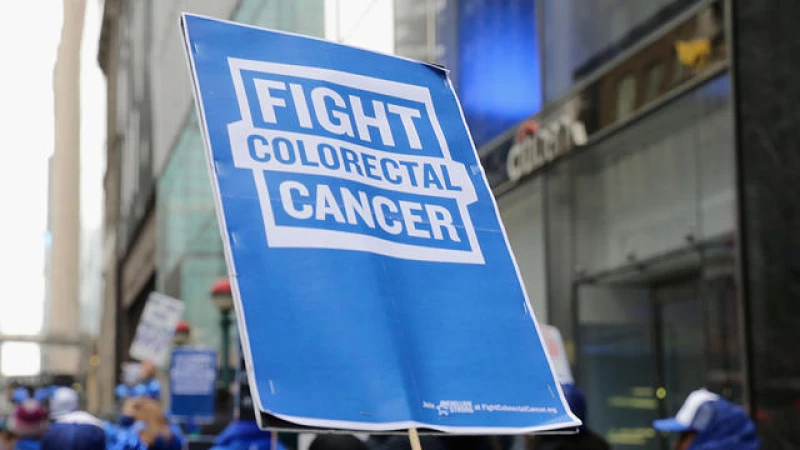A recent study from the American Cancer Society reveals that Americans are experiencing higher rates of cancer, including colon cancer, breast cancer, cervical cancer, and other types. What's more alarming is that these cancers are being diagnosed at younger ages.
According to the study published in CA: A Cancer Journal for Clinicians, colorectal cancer, which used to be the fourth-leading cause of cancer deaths for individuals under 50, has now climbed to the top spot for men and second place for women. It is important to note that cancer is the second-leading cause of death in U.S. adults, trailing behind heart disease, as reported by the Centers for Disease Control and Prevention.
"We've been observing an increased risk of colon cancer incidence for years. However, it takes time for this to result in increased deaths because the progression is not immediate," explained CBS News chief medical correspondent Dr. Jon LaPook, who is also a gastroenterologist, during an interview on "CBS Mornings."
The study's lead author, he said, expressed concern to him that the cancers that make up 6 of the 10 top causes of death have increased.
"Even though the deaths haven't increased yet, this is a warning signal that says, hey, let's take a look at this, because it could translate to deaths down the line," LaPook said.
What kinds of cancers are increasing?
Colorectal cancer, uterine cancer, kidney cancer, gastric or stomach cancer and pancreatic cancer are on the rise, Dr. Tim Tiutan, an oncology hospitalist, told CBS News.
While cancers like lung cancer have been decreasing as cigarette smoking has declined, a decrease in colorectal cancer among adults 65 and older has masked the rise in these cancers in people younger than 55 since the 1990s, the study states.
"If you compare between the year 2000 and the year 2019, for those under the age of 50, 13% increase," Tiutan said.
Colon cancer screening guidelines have been altered in recent years to try to catch these cancers in people of younger ages, lowering the recommended age of first screening from 50 to 45 for adults with average risk.
Why are more people getting certain cancers?
Rising Incidence of Colorectal Cancers Linked to Lifestyle Exposures
Lifestyle factors that influence the body's microbiome could be behind the rising incidence of colorectal cancers in the United States and several other high-income countries since the mid-1990s, according to a recent study.
The study's authors suggest that the increase in colorectal cancers is likely a result of changes in lifestyle exposures that began with generations born around 1950.
"The possible reasons why are all theoretical. For one thing, obesity is increasing, so it's linked to obesity — something in our diet, something in the environment," said Dr. LaPook, one of the researchers. "An interesting theory is the microbiome, the trillions of bacteria, thousands of species in our gut. And there are certain types — certain species — that seem to be linked to an increased risk of colon cancer. And we're changing our microbiome with antibiotics, with our diet, with things like that."
Other potential contributing factors to the rising incidence of colorectal cancers include the consumption of meats and ultraprocessed foods, such as packaged cookies, chips, and boxed pizza, as well as alcohol and tobacco use and a sedentary lifestyle.
"The theories center around the gut microbiome. The microorganisms that live in our stomach, intestines, that get influenced by what we put in our body or what we do with our body, that increase inflammation to then increase cancer risk," explained Dr. Tituan, another researcher involved in the study.
Despite the devastating impact of cancer, there is some positive news to be found. Recent studies have shown that the survival rate for cancer patients has significantly improved over the years. In fact, the 5-year survival rate is now at 69%, which is a remarkable increase from less than half that rate in the 1970s.
Furthermore, the overall death rate from cancer has seen a significant decline. As of 2021, the death rate has been reduced by 33% compared to its peak in 1991.
While these statistics are encouraging, it is important to note that cancer still remains a leading cause of death. The study's authors estimate that more than 600,000 people in the U.S. will lose their lives to cancer this year, averaging 1,680 deaths every day.







